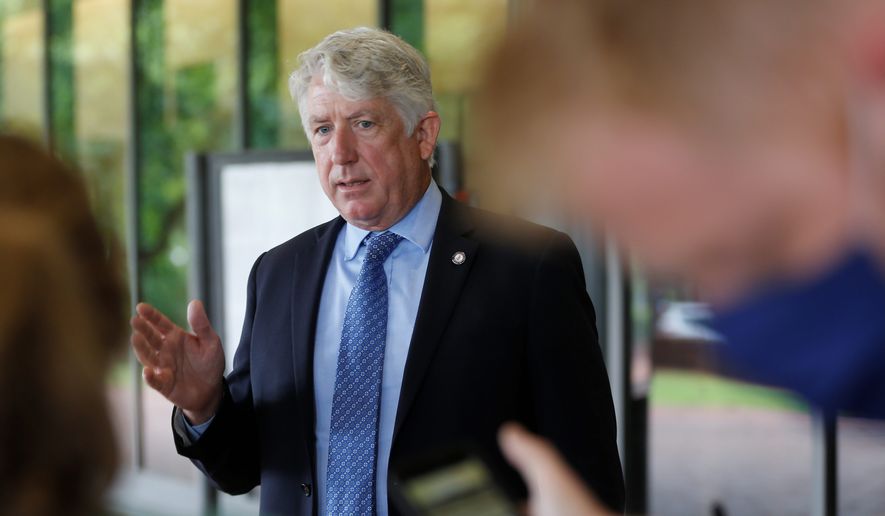Virginia Attorney General Mark Herring announced Wednesday that the commonwealth had eliminated a backlog of nearly 3,000 untested rape kits.
“And it’s never coming back,” Mr. Herring said of the backlog, receiving applause during a press conference in Richmond.
Investigators use rape kits to collect DNA and other physical evidence from victims.
Mr. Herring, a Democrat, said that he was shocked to learn of the backlog when he took office more than six years ago and that many of the evidence kits had “been sitting on the shelves in police storage facilities around the commonwealth just collecting dust” for decades.
Since 2015, 2,665 kits were tested, resulting in 851 DNA profiles entered into the national database and 354 DNA matches sent to law enforcement agencies for further investigation, Mr. Herring said.
He noted that a Spotsylvania man was charged in November with sexually assaulting a minor after being identified through the initiative to test untested rape kits. Mr. Herring said the man was charged after the DNA profile from a 2012 rape kit was uploaded to the national database and identified him as the source.
The attorney general said he anticipates other charges will result from rape kit tests.
“Each of these kits represented a survivor’s trauma ,and each of them could have held key evidence in bringing a perpetrator to justice, but they had been pushed to the side and never dealt with,” he said. “And for many survivors, the fact that their kit was never tested denied them a sense of security and justice that is critical for healing from such a traumatic experience.”
To prevent another backlog, Mr. Herring said he helped pass a law in 2016 mandating the immediate testing of kits and the Department of Forensic Sciences developed a database so that law enforcement, hospitals and survivors can check the status of the evidence kit at any time.
Virginia — the seventh state to eliminate its backlog of untested rape kits — received grants totaling to $3.4 million to eliminate the backlog, develop the database and fund personnel to support survivors and coordinate testing, as well as training among law enforcement to promote trauma-informed practicies.
Debbie Smith, a Williamsburg woman who was raped in 1989, said at the press conference that the testing of her rape kit returned her freedom. The assault went unsolved for 6 years until a DNA test made a cold hit on a repeat offender who was serving time for other crimes.
“For the first time after the cold hit was found because of my kit being tested, I took a walk in my neighborhood,” Ms. Smith said, adding that she was in constant fear and suicidal. “I was able to walk around freely without feeling that maybe he was watching me.”
She said she started her advocacy work for improving investigative services for sexual assault crimes because after her trial, she was taken into a storage room filled ceiling to floor with untested rape kits.
“I knew that each one of those women were feeling some of the same feelings I felt before my assailant was identified,” Ms. Smith said of each of the kits.
• This article is based in part on wire service reports.
• Sophie Kaplan can be reached at skaplan@washingtontimes.com.




Please read our comment policy before commenting.